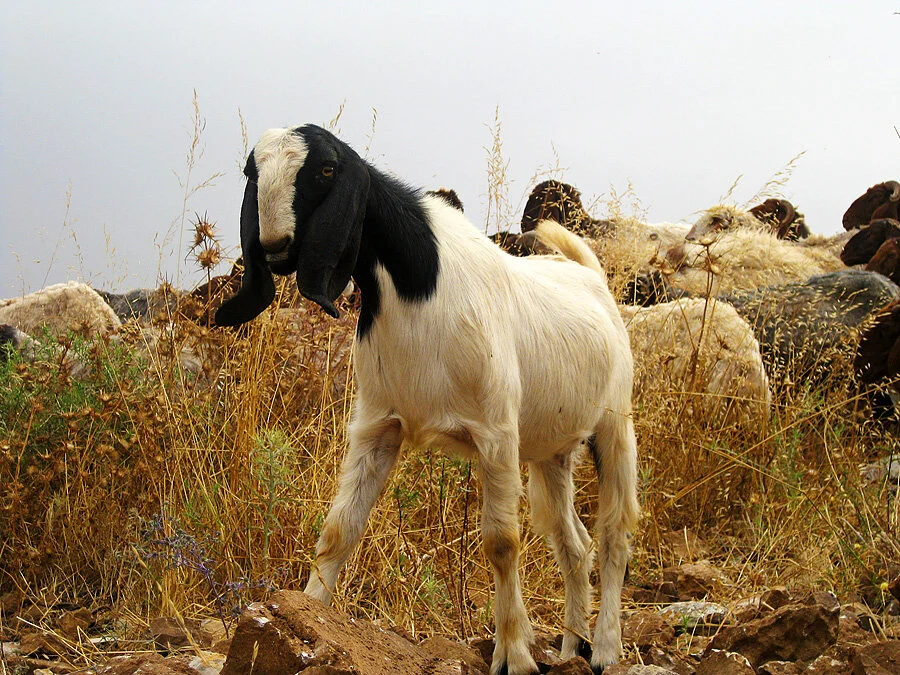AUTHOR: Keshub, how does it feel to be featured in a Late Bronze Age adventure story published in the 21st century?
KESHUB: Hunh?
AUTHOR: Well, it’s complicated, but if you could speak to young people your age who live 3400 years after you, what would you say is the most important thing you learned from being a shepherd?
KESHUB: The first thing I learned from shepherding was patience. I ran everywhere I went before I became ten harvests old. I had to slow down to lead the sheep and goats to green pasture. Running is not what sheep do. I had to do what was best for the sheep. My family depends on our sheep and goats for food and clothing.
AUTHOR: You clearly loved shepherding. How did you get started as a shepherd when you were ten? What about shepherding appealed to you?
KESHUB: For the first few moons I went out with my older brother Eskie who is four harvests older than me. He taught me where the best grazing areas were and how to manage the sheep. When Eskie was promoted to helping Uncle Samir in gathering wood for firing days in the pottery yard, I was in charge of the flock.
AUTHOR: What was your favorite thing about shepherding?
KESHUB: First it was spending those several moons with my brother Eskie and learning from him. Later, when I was alone with my flock I most enjoyed seeing the sun come up over the horizon beyond Jericho. I had never been there, but I had heard the caravanners' tell about it. I imagined going there some day.
AUTHOR: Eskie was clearly one of your heroes. Who were your other heroes?
KESHUB: There was a time I was awed by the Amorite king, Adoni-Zedek.
AUTHOR: That makes sense. He was a king, a very important, powerful person.
KESHUB: When I met his son Bin-Zedek, I compared my father to Zed’s stories of a brave king who fought for his people. I wondered what my own quiet, hard-working father the potter would do if we were faced with an enemy.
AUTHOR: Why did your attitude change toward Zedek?
KESHUB: The second time, Zed was no longer boasting about his father. He was very afraid—even for his life. At the time, I did not understand why.
AUTHOR: And then you met the king, right?
KESHUB: Yes, I did. He came to our courtyard to persuade my father to join an alliance with the Amorites. His soldiers were afraid of him just like Plain Zed. I had never before seen a man with such selfish, angry, and evil eyes. Everyone jumped to obey him. Except for my father.
AUTHOR: Why not your father?
KESHUB: I learned my father was much more than a hard-working potter. He, like my granbaba before him, must have thought deep thoughts while he worked the clay day after day.
AUTHOR: Why do you say this?
KESHUB: Well, part of Zedek’s offer was for my father to make little clay figures of Zedek’s god Molech. He said our family would become rich if we did this and sold them in the marketplace in Jerusalem.
AUTHOR: What did your father say?
KESHUB: Well, to Zedek, Baba said ours was a small family business, and we did not have the ability to fulfill the king’s request. But afterwards to my Uncle Yaakoub, my father said he would not dirty his hands to make something so useless as a clay figure and call it god. He said he had made many things with his hands but nothing that had power to do anything for him but hold the water we carry or to trade it for grain or other goods.
AUTHOR: So how did your father compare to Zedek in your eyes after that?
KESHUB: No comparison. My father proved he was a man of integrity. He always told us to do what is right and good no matter where we were. My father was not famous for his bravery like Zedek, but that night he was the bravest man in the world to me.
AUTHOR: On that note, Keshub, I think we have a wrap for today’s blog post.
KESHUB: Hunh?
